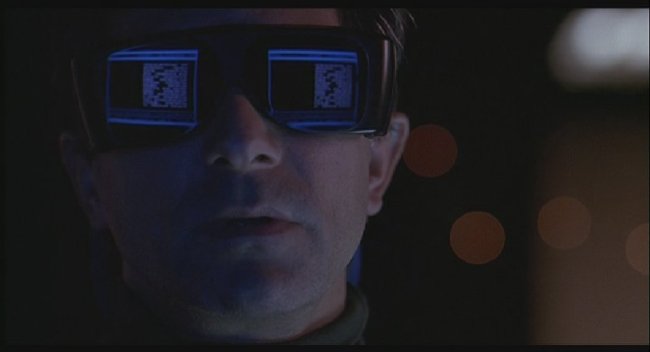September 6, 2008
Cybercrime and the Culture of Fear… or How Cyberpunk SF increased our knowledge of cybercrimes.
Sources: Wired’s Beyond the Beyond, io9, Social Science Research Network (SSRN)
Abstract from SSRN:
This article builds upon my previous work (Wall, 2007 & 2008) to map out the conceptual origins of cybercrime in social science fiction and other faction genres to explore the relationship between rhetoric and reality in the production of knowledge about it. The article goes on to illustrate how the reporting of dystopic narratives about life in networked worlds shapes public reactions to technological change. Reactions which heighten the culture of fear about cybercrime, which in turn, shapes public expectations of online risk, the formation of law and the subsequent interpretation of justice. Finally, the article identifies and responds to the various mythologies that are currently circulating about cybercrime, before identifying the various tensions in the production of criminological knowledge about it that contribute to sustaining those mythologies.

Academia strikes again. Professor Wall… maybe it’s Doctor Wall?…. David Wall from Leeds University has published a paper on how the media echo-chamber has turned harmless cyberpunk sci-fi into realtime panic of cybercrimes. It’s not exactly an easy read, unless you’re used to reading and/or writing them. Wall’s conclusion, as io9 puts it, not only is the threat of cybercrime is grossly exaggerated, it’s “social” science fiction, especially cyberpunk, that planted the seeds of this misplaced dread.
There’s probably some elite hackers out there who would disagree with that conclusion. Not only them, but CP legend Bruce Sterling as well:
(((I have to wonder if this British criminal justice professor has ever studied cybercriminals who don’t read scifi novels in English. I mean, we cyberpunks did our best — some of our best sources in the 80s were criminal justice professors — but you could pore through the cyberpunk canon and you’d never find much about today’s giant botnet spam engines.)))
(((I also note the conspicuous absence of HACKER CRACKDOWN from his bibliography. Kinda odd that he would overlook the only nonfiction book about computer crime written by a cyberpunk novelist.)))
(((I guess I can forgive him because he’s quoting Baudrillard. A sure sign that he’s more into semiotics and cultural transgression than he is in the merely factual existence of cybercriminals who are stealing a living from the rest of us every day.)))
Haxploitation, he wrote. Wall uses the term for movies like Sneakers and Hackers; Hollywood’s incestuous amplification of hacker lore to near-biblical mythology, and the sheeple believe the myths to be real.
Perhaps the sheeple needs to read this article. I’d like to find Wall’s other papers on this subject; They may provide some more insight.





Comments
September 6, 2008
z0ne_tripper said:
http://www.leeds.ac.uk/law/lawmods/cybercri.htm
September 9, 2008
Twitchy said:
http://geektragedy.com/strips/2005/20050728.htm
September 12, 2008
nobody said:
change “cybercrime” “terrorist attack”:
the threat of terrorist attacks is grossly exaggerated, it’s “social” science fiction.
Cybercrime is real. I dont know how great the fear from the people to cybercrime is, but it seems, their fear of terrorist attacks is bigger, even if it’s not real.